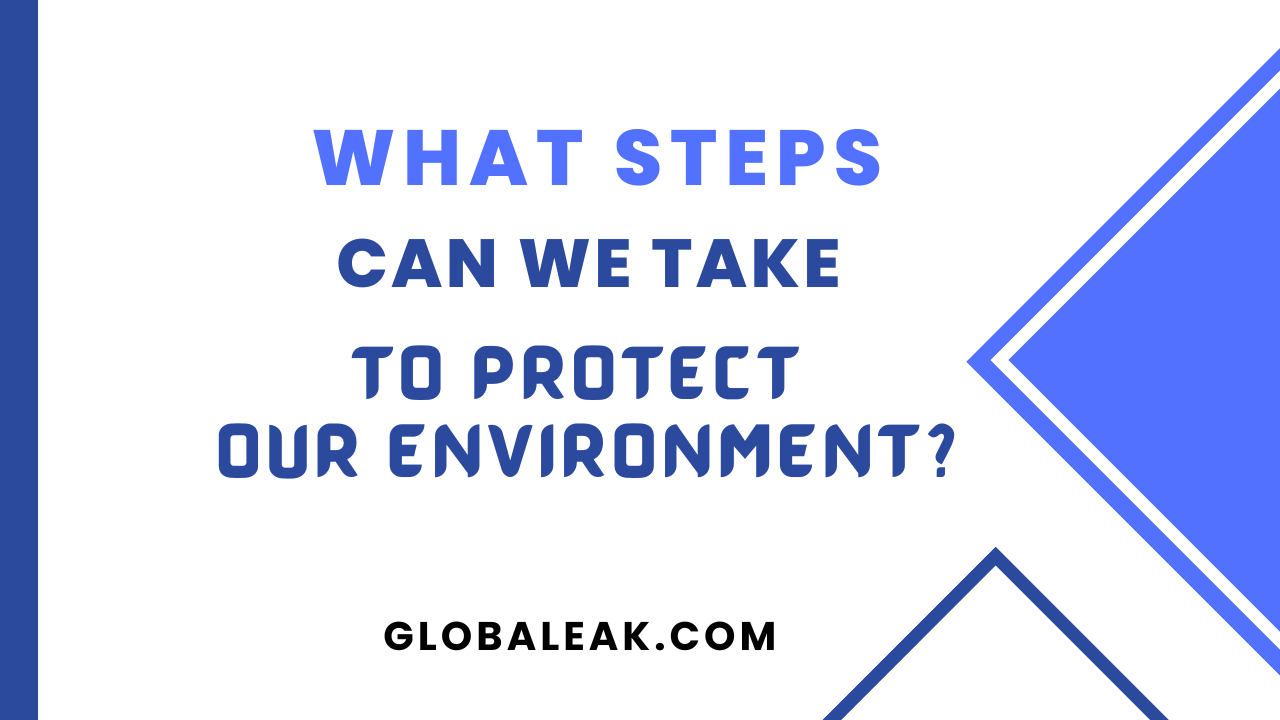Protecting the environment is a crucial task that requires collective effort from individuals, communities, businesses, and governments. Reduce, reuse, and recycle are some effective ways to contribute to environmental protection. Reducing consumption implies that we should use only what we need and avoid unnecessary waste.
Reusing items means that whenever possible, reuse items instead of buying new ones, and recycling is a kind of process of remake of materials like paper, glass, plastic, and metal. Collectively, these efforts can have a significant positive impact on the environment. Being a role model and inspiring others to adopt sustainable practices can create a ripple effect for positive change.
1. Reduce, Reuse, and Recycle
- Reduce Consumption: Use only what you need and avoid unnecessary waste. Consider the environmental impact of your purchases.
- Reuse Items: Whenever possible, reuse items instead of buying new ones. Repair and repurpose old items to extend their lifespan.
- Recycle: Support recycling programs for materials like paper, glass, plastic, and metal. Dispose of recyclables responsibly.
2. Conserve Energy
- Use Energy-Efficient Appliances: Opt for energy-efficient appliances and light bulbs to reduce electricity consumption.
- Turn Off: Switch off lights, electronics, and appliances when not in use. Unplug chargers to prevent “phantom” energy use.
- Renewable Energy: Consider using renewable energy sources like solar or wind power for your home.
3. Saving Water
- Fix Leaks Promptly: Address water leaks in your home to prevent water wastage.
- Water-Saving Appliances: Install water-saving appliances and fixtures, such as low-flow toilets and efficient shower heads.
- Water-Efficient Practices: Practice water conservation, including shorter showers and collecting rainwater for plants.
4. Sustainable Transportation
- Choose Green Transportation: Walk, bike, carpool, or use public transport whenever possible to reduce emissions.
- Consider Electric or Hybrid Vehicles: If you need a car, consider hybrid or electric vehicles with lower carbon footprints.
5. Support Local and Sustainable Products
- Buy Local: Choose locally-produced goods to reduce transportation emissions and support local economies.
- Minimal Packaging: Select products with minimal packaging or packaging made from recycled materials.
6. Plant Trees and Maintain Green Spaces
- Tree Planting: Trees absorb carbon dioxide and provide oxygen. Support or participate in local tree-planting initiatives.
- Green Spaces: Advocate for and maintain green spaces in your community to provide habitat for wildlife.
7. Reduce Single-Use Plastics
- Use Reusable Items: Opt for reusable bags, bottles, and containers to reduce plastic waste.
- Avoid Single-Use Plastics: Say no to single-use items like plastic straws, utensils, and coffee cups. Bring your own reusable alternatives.
8. Sustainable Eating Habits
- Go Plant-Based: Consume more plant-based foods and reduce meat consumption, especially beef, to lower your carbon footprint.
- Support Local and Organic Farming: Choose locally-sourced and organic foods to support sustainable farming practices.
9. Support Conservation Efforts
- Contribute and Volunteer: Support organizations working to protect natural habitats and wildlife through donations or volunteering.
10. Educate Yourself and Others
- Stay Informed: Continuously educate yourself about environmental issues and solutions. Follow reliable sources for updates.
- Share Knowledge: Share information and encourage sustainable practices with friends and family, promoting a culture of environmental awareness.
11. Advocate for Change
- Support Policies: Advocate for policies and initiatives that prioritize environmental protection at local, national, and global levels.
- Engage with Government: Engage with local and national governments to voice your concerns and promote sustainable practices.
12. Reduce, Avoid, and Properly Dispose of Hazardous Chemicals
- Eco-Friendly Alternatives: Use eco-friendly, non-toxic alternatives whenever possible, such as cleaning products and pesticides.
- Responsible Disposal: Dispose of hazardous materials like batteries, electronics, and chemicals through proper channels.
13. Promote Sustainable Tourism
- Eco-Friendly Choices: Choose eco-friendly accommodations and activities when traveling. Respect natural habitats and local cultures.
14. Practice Responsible Pet Ownership
- Spay/Neuter Pets: Reduce pet overpopulation by spaying/neutering.
- Clean Up After Pets: Prevent pollution by picking up after your pets.
15. Support Renewable Energy Initiatives
- Advocate for Renewables: Advocate for and use renewable energy sources in your community to reduce dependence on fossil fuels.
Remember that protecting the environment is an ongoing commitment, and every positive action, no matter how small, contributes to a more sustainable future. Together, we can make a significant difference in preserving our planet for generations to come.
Resources and Further Reading
- Air Pollution: Environmental Impact, Causes And Solutions
- Environmental Pollution – A Real Threat To Our World
- Not All Recycling Projects Are Cost-effective
📍 English Language Educator | Blogger & Content Strategist | 7+ Years in Educational Blogging
Nosheen Bashir is a dedicated English teacher and experienced blogger with over seven years of expertise in content creation and educational writing. Passionate about language, literature, and effective communication, she combines her teaching experience with blogging skills to create insightful, research-backed content that helps learners and educators alike.
🔹 Expertise & Achievements:
✔ English Language Education: A skilled educator with years of experience in teaching English grammar, literature, and communication skills to students of varying levels.
✔ Educational Blogging: Running a successful blog for 7+ years, delivering well-structured, engaging content on language learning, writing techniques, and academic success.
✔ SEO & Content Strategy: Specializes in creating high-ranking, authoritative articles that follow Google’s EEAT principles, ensuring content that is both informative and search-friendly.
✔ Student-Centric Approach: Committed to making English easier, engaging, and accessible, helping readers and students improve their language proficiency.
🚀 With a passion for teaching and writing, Nosheen Bashir is dedicated to crafting educational content that empowers students, teachers, and language enthusiasts worldwide.










